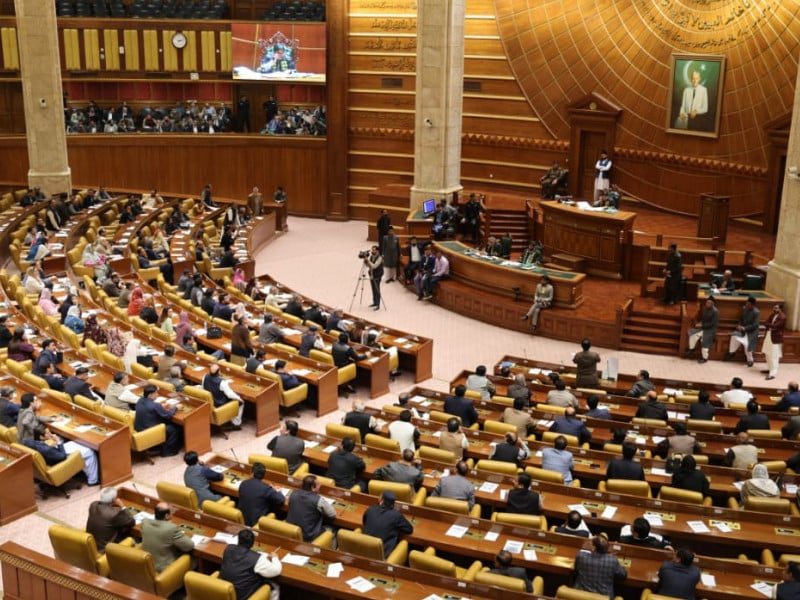Under the proposed legislation, the military and paramilitary forces will have the authority to detain suspects without immediate trial for up to three months

By our correspondent
ISLAMABAD: In a significant move to bolster national security, Pakistan’s National Assembly has proposed an amendment to the Anti-Terrorism Act that would empower the armed forces and paramilitary units to detain individuals involved in serious crimes for up to three months. Presented by Interior Minister Mohsin Naqvi, the amendment aims to enhance public order and address crimes that pose threats to national security, such as extortion, targeted killings, and kidnapping.
Under the proposed legislation, the military and paramilitary forces will have the authority to detain suspects without immediate trial for up to three months. However, the amendment specifies that any detention beyond this period must adhere to the transparent trial rights established under Article 10-A of Pakistan’s constitution, which guarantees the right to a fair trial. To ensure a comprehensive investigation into the allegations against detained suspects, a Joint Investigation Team (JIT) will be formed. This team will consist of officials from various sectors, including law enforcement, the armed forces, intelligence agencies, and senior police officers, tasked with conducting rigorous and collaborative inquiries.
This legislative move comes shortly after the federal cabinet approved a similar amendment specifically for the province of Balochistan, where security forces were granted special powers in response to rising violence. The province has seen a surge in terrorist attacks, with a particularly brutal incident on the night of August 25-26, when terrorists conducted a series of assaults that resulted in the deaths of 21 civilians after verifying their identities. The violence also claimed the lives of several personnel from the Frontier Corps and the Pakistan Army.
The introduction of this amendment reflects the government’s urgency to enhance the operational capabilities of security forces, particularly in Balochistan, where security challenges have escalated in recent months. By providing legal backing for counter-terrorism operations, authorities hope to enable a more effective response to the rising threat of terrorism and restore a sense of safety in the affected regions.
While the amendment is framed as a necessary measure to combat growing insecurity, it also raises concerns about potential abuses of power and the safeguarding of individual rights. As Pakistan navigates the delicate balance between security and civil liberties, the implications of such legislative changes will be closely scrutinized by civil society and human rights advocates, who emphasize the importance of upholding due process even in the face of urgent security challenges.



